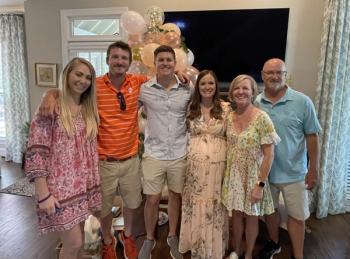
Videos

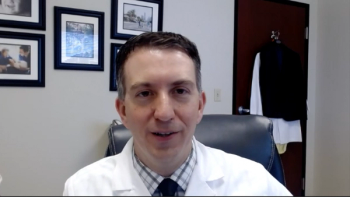
In recent years, immunotherapy’s usage has expanded for the treatment of patients with kidney cancer.
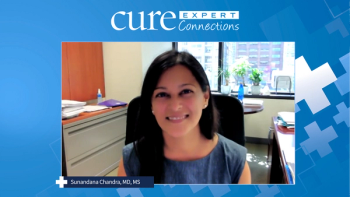
Dr Sunandana Chandra highlights her personal experience in prescribing tebentafusp and other therapies for mUM, and discusses the educational resources and advocacy organizations that she encourages patients to look into to help make an informed decision about their treatment regimens.

An oncologist outlines which patients with mUM are eligible for bispecific T-cell receptor immunotherapy, discusses logistical and safety considerations, and explains why pre-treatment HLA testing is required for those considering the regimen.

Sunandana Chandra, MD, MS, discusses safety and efficacy data from the IMCgp100-202 trial on tebentafusp, and comments on the clinical implications of these data.

An expert provides an overview of the historical and currently available treatment options in metastatic uveal melanoma (mUM), including the bispecific T-cell receptor immunotherapy tebentafusp (“teh-BEN-tah-fuhsp”).
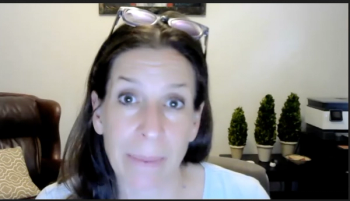
A psychiatrist advises patients with cancer to speak up about their mental health concerns during cancer treatment, as there are tools that can guide best next steps.
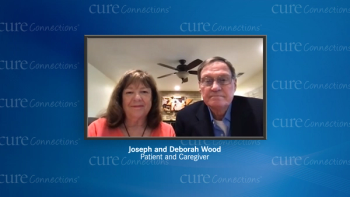
Joseph Wood and his caregiver, Deborah Wood, provide advice for patients and caregivers with prostate cancer who may be in similar situations, and comment on the support they have received from their family and community.

Dr Sunandana Chandra describes the typical symptoms that patients with uveal melanoma experience, the prevalent asymptomatic patient population, and how optometrists and ophthalmologists may be involved in the diagnostic process.

Sunandana Chandra, MD, MS, explains how uveal melanoma is different from cutaneous melanoma, including prevalence, molecular mutations, and survival prognosis after metastasis.
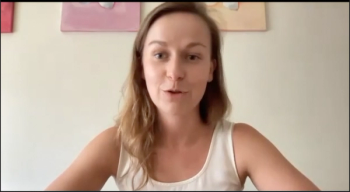
Many patients with breast cancer ask about the benefits of the supplement sulforaphane, but a naturopathic doctor advises patients that it is best to get the compound from food rather than supplements.

Joseph Wood and his wife and caregiver, Deborah, share their concerns and questions about radioligand therapy and how the COVID-19 pandemic has impacted their treatment experience.
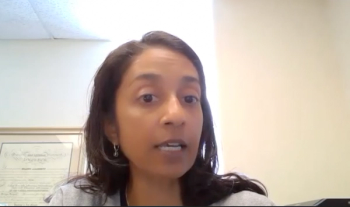
In this video, an expert discusses which men with prostate cancer are eligible for genetic testing, and what patients can do if they are not eligible but want to undergo testing anyway.
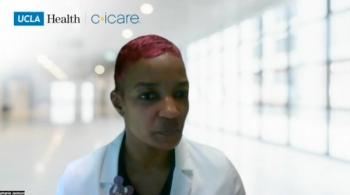
Patients with cancer are encouraged to learn more about their disease from evidenced-based sources and not “Dr. Google.”
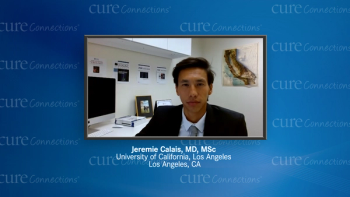
Dr Jeremie Calais shares some clinical pearls for lutetium-177 PSMA 617 and how this therapy has changed the treatment landscape for patients with metastatic castration resistant prostate cancer (mCRPC).
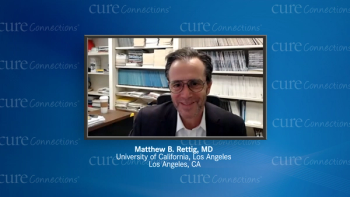
Drs Matthew Rettig and Jeremie Calais explain what it means to be a part of a collaborative team and how communication plays a big role in patients receiving optimal treatment.
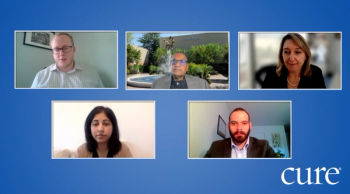
Watch Dr. Ravi Salgia, Dr. Erminia Massarelli, Dr. Jyoti Malhotra and Daniel Saez answer questions about advancements in lung cancer during the CURE Educated Patient Lung Cancer Summit.
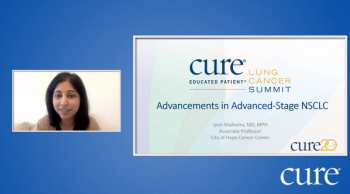
Watch Dr. Jyoti Malhotra, from City of Hope, discuss advancements in advanced-stage non-small cell lung cancer during the CURE Educated Patient Lung Cancer Summit.
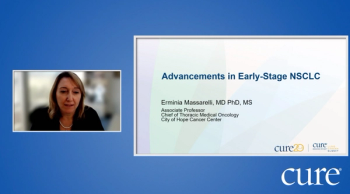
Watch Dr. Erminia Massarelli, from City of Hope, discuss advancements in early-stage non-small cell lung cancer during the CURE Educated Patient Lung Cancer Summit.

Joseph Wood details his treatment journey with metastatic castration-resistant prostate cancer (mCRPC) and how the journey has impacted his wife and caregiver, Deborah Wood.

Dr Jeremie Calais reviews the VISION trial and the implications of the data in the treatment paradigm for metastatic castration-resistant prostate cancer (mCRPC).
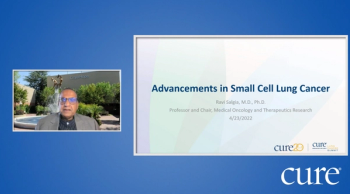
Watch Dr. Ravi Salgia, from City of Hope, discuss advancements in small cell lung cancer during the CURE Educated Patient Lung Cancer Summit.
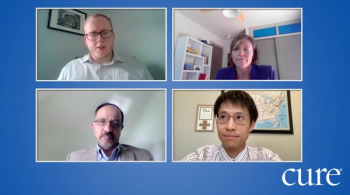
Watch Nikki Martin, Dr. Ying-Chun Lo and Dr. Hossein Borghaei discuss overcoming barriers to receiving biomarker testing during the CURE Educated Patient Lung Cancer Summit.
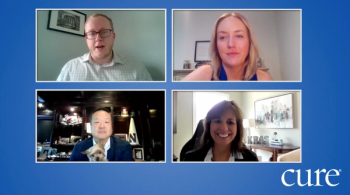
Watch Elisabeth King, Dr. Edward S. Kim and Terri Conneran answer questions about targeted therapy during the CURE Educated Patient Lung Cancer Summit.
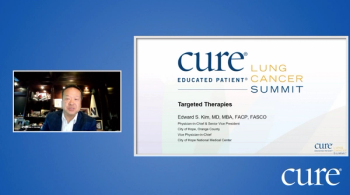
Watch Dr. Edward S. Kim, from City of Hope, discuss targeted therapy during the CURE Educated Patient Lung Cancer Summit.
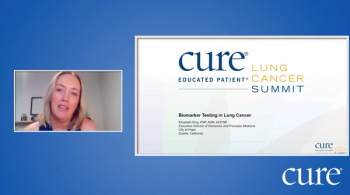
Watch Elisabeth King, from City of Hope, discuss biomarker testing during the CURE Educated Patient Lung Cancer Summit.
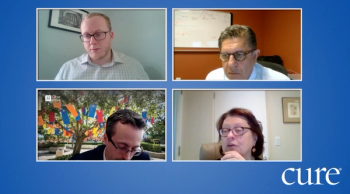
Watch Dr. Farhad Mazdisnian, Dr. Terence Williams and Dr. Antoinette J. Wozniak answer questions about the basics of the disease during the CURE Educated Patient Lung Cancer Summit.
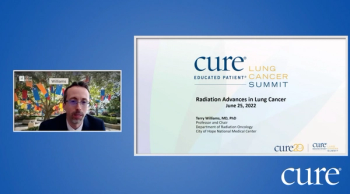
Watch Dr. Terrance M. Williams, from City of Hope, discuss radiation advances during the CURE Educated Patient Lung Cancer Summit.

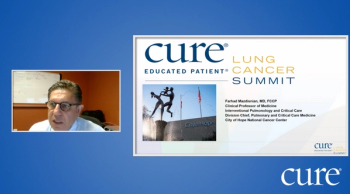
Watch Dr. Farhard Mazdisnian, from City of Hope, discuss diagnosing early, locally advanced and metastatic disease, during the CURE Educated Patient Lung Cancer Summit.